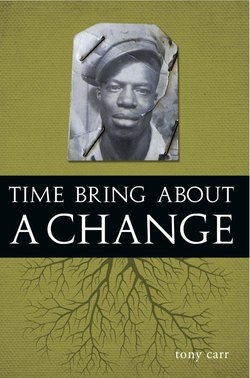Читать книгу Time Bring About a Change - Tony J.D. Carr - Страница 7
На сайте Литреса книга снята с продажи.
Chapter Three Big Momma
ОглавлениеMy maternal grandmother’s name was Opal (Ball) Henry, but she was always known as “Big Momma” to her family and friends. Big Momma was a loving, caring, jolly woman who would find humor in the many struggles of her past, but I know deep down inside they bothered her.
The second youngest of 10 children in Mississippi, Big Momma had lost both her mother and father by the age of 11, and was primarily raised by older siblings. Unfortunately, she did not have photographs or many memories of her parents to share with her children and grandchildren. Like many black people in the South, the Balls had white blood in their family. In fact, several of Big Momma’s siblings had blue eyes and fair skin, and some of her cousins were 100 percent white. Big Momma recalled how the white and black cousins never acknowledged one another in public or even in private. I once asked her how hard was it for her and her siblings to know these were blood cousins and they could not talk to them because they were black. “There was love from both sides of the color line,” Big Momma said, “and it was known and felt. But the way of the South at that time would not accept the family bond.”
All her life, Big Momma worked hard. As a child, she’d had to do her share of chores on the farm. Her work ethic was “Work and work until it gets done.” She had a presence and a touch that could heal a wounded heart, and a spirit to motivate the unmotivated. As an adult, Big Momma was known for being a great cook and housekeeper. She not only took care of her own children, but was also the “Mammy,” or nanny, to the white children in the “big house” on the plantation where they lived.
All throughout the later years of her adult life, Big Momma spoke of a little girl named Betty Alice, one of the white children she cared for back on the plantation. She had a special bond with Betty Alice, whom she loved almost as one of her own children. One evening when Betty Alice’s parents had gone out to dinner, Big Momma prepared a fancy meal as a treat for her and the little girl to share. She thought that since the two of them were alone, they could have some fun together. After the dinner was prepared, she made a plate for Betty Alice and set it on the table in the dining room. Then Big Momma made one mistake. She prepared a plate for herself and placed it at the table next to Betty Alice. The girl looked up at her with scorn in her eyes. “What are you doing?” she demanded. “Niggers don’t eat at the big table, you need to go in the back and eat your dinner.”
After she finished sharing that story, I said to Big Momma, “I know you let that little girl know what time it was, didn’t you? What did you do, Big Momma? Tell me!”
And I remember the expression on Big Momma’s face when she said that she took her plate and went to the back of the house to eat her dinner. Even after all these years, I can still see the pain and hurt in my grandmother’s eyes, reflecting a sorrow that had stayed with her all this time. To this day, it pains me to think of my own grandmother being treated this way by a child she loved, and it sickens me to think of how this innocent child had been poisoned by racism and ignorance to believe she was superior to a black person.
I speak today for my grandparents, who, living in a profoundly racist society, were never given the right to speak up for themselves. My grandparents made me what I am today as well as what I become tomorrow. I thank my grandparents for teaching me to love and not to hate. Even though they encountered countless injustices during their lifetime, they never lowered themselves to hate whites or people of any other race. I thank my grandparents for teaching me to treat people the way that I want to be treated. I thank my grandparents for teaching me to love and respect everyone in the human race, and stressing that we are all in this world together.
Big Momma passed away in 1989 after a battle with Alzheimer’s disease. Even prior to her death, with so much of her memory and communication fading away, she still would speak about little Betty Alice in a loving and mothering way.
